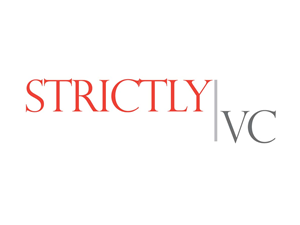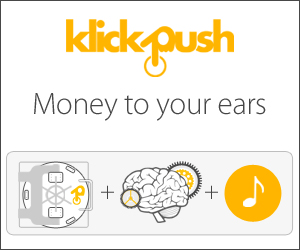 It’s Friday, and StrictlyVC is a little tired after a late-night birthday celebration, so please excuse any and all typos. Also: stay tuned for some good stuff coming next week, including pieces featuring famed investor David Chao and Institutional Venture Partners.
It’s Friday, and StrictlyVC is a little tired after a late-night birthday celebration, so please excuse any and all typos. Also: stay tuned for some good stuff coming next week, including pieces featuring famed investor David Chao and Institutional Venture Partners.
In the meantime, you can always reach me at connie@strictlyvc.com or on Twitter, and you can sign for the newsletter right here. Thanks again for reading and have a terrific weekend!
——
Top News in the A.M.
Ford CEO Alan Mulally is now the number one candidate to become Microsoft’s new CEO, reports AllThingsD.
——
Attorney Jay Gould on the Pros and Cons of a Public Venture Offering: “Someone Will Do It Right”
Earlier this week, I wrote that venture capitalists should take advantage of new general solicitation rules that allow them to advertise when they’re in fundraising mode. I was expecting pushback from skeptical VCs; what I heard from them instead was confusion about how they could advertise without breaking the rules.
For help, I phoned Jay Gould, a partner at Pillsbury Winthrop Shaw Pittman who heads up the law firm’s investment funds practice. Gould — who’s in regular communication with the SEC and says those proposed amendments around the new rules will likely be “substantially” adopted — agreed to discuss the pros and cons for VCs interested in advertising.
According to Gould, one of the biggest downsides of advertising is “potentially” drawing more scrutiny from regulators and investors. (It’s already VCs’ biggest fear, seemingly.)
There’s also just a lot more paperwork. First, a firm will have to file a Form D at least 15 days before beginning its general solicitation for the offering. It will then have to elaborate on whatever advertising methods it plans to use. And it will need to file offering materials, like PPMs, with the SEC before it starts handing them out to investors. Not last, a follow-on form has to be filed once the offering is closed.
The solicitation period can also be a little labor intensive, particularly if it drags on and the firm’s performance changes during that time. The reason, says Gould, is Rule 156 of the Securities Act, which states that funds can’t represent information is any way that’s misleading or causes “material” confusion to investors. That means if an existing investment goes south during the marketing of a new fund, the firm needs to alter its advertising to reflect that change in its overall performance to stay in the good graces of the SEC. (Gould says firms should do this “promptly,” and suggests that even minor changes in performance could necessitate these updates.)
What if a venture firm embarks on a public offering, then decides to shifts gears to raise the rest of a new fund privately? It’s not something Gould recommends. Among other challenges: after a public offering closes, a firm has to wait another six months before launching a private offering. (It’s a rule meant to keep the offerings from becoming integrated.)
So what are the advantages for firms interested in availing themselves of the new rules, I ask Gould. He’s quick to point out that the funds that embrace them can post their performance numbers on their Websites, or go on television and talk about their funds without “getting grilled by compliance people.” Both could be effective in bolstering a firm’s brand and making it faster to raise a fund.
In fact, he says, Pillsbury already has “a couple” of fund clients that intend to pursue general solicitation. And he anticipates many more to come — even if it takes a couple of years for firms to grow comfortable with the prospect.
Most venture firms still “view these new rules somewhat suspiciously,” Gould notes. “But someone will do it right,” he says. “And it will be a really professional, polished effort. And people will go, ‘Holy shit. That’s the new standard. I guess I have to do this now.’”
New Fundings
3D Robotics, a four-year-old, San Diego-based maker of unmanned aerial vehicles, has raised $30 million in series B funding. The company, which was cofounded by former Wired editor Chris Anderson, raised the capital from Foundry Group, SK Ventures, and existing investors True Ventures and O’Reilly AlphaTech Ventures. The company had raised a $5 million Series A round last year.
Antenna Software, a mobile applications developer based in Jersey City, New Jersey, is raising a $3 million round, according to an SEC filing, which states the company has so far raised $2.56 million, including from Investor Growth Capital and Integral Investment Capital.
Avocado Software, an 18-month-old, San Francisco-based company cofounded by Chris Weatherell, an early creator of Google Reader, and Jennifer Bilotta, formerly a senior user experience designer at YouTube, has raised nearly $900,000 in debt, according to an SEC filing. Avocado’s couple-focused app aims to help users “stay connected with the most important person in your life, through chat, lists, calendars, sketches” and more. Last year, the company closed a $1.3 seed round, including from Baseline Ventures, Lightspeed Ventures, and General Catalyst.
DropThought, a year-old, Santa Clara, Calif.-based company focused on customer engagement analysis and social media marketing services, has raised $2. 5 million in Series A funding, according to an SEC filing. Investors include Xseed Capital.
Good Eggs, a two-year-old San Francisco based company that aggregates, packs and delivers locally grown food to its customers’ doors, has raised an $8.5 million Series A round led by Sequoia Capital and joined by Harrison Metal, Collaborative Fund and angel investor Max Ventilla, among others.
Liftopia, an 8-year-old, San Francisco-based company whose online marketplace caters to the ski and mountain activity industries, has raised $5 million in financing led by Industry Ventures. New investors ru-Net, Thayer Ventures, Salesforce CEO Marc Benioff, Zillow CEO Spencer Rascoff, Yelp CEO Jeremy Stoppelman and Walter Winshall also participated, as did existing investors First Round Capital, Lowercase Capital, SK Ventures, Xandex and former Expedia CEO Erik Blachford. The company has now raised $7.9 million to date.
MakeSpace, a months-old startup based in New York City that offers customers on-demand storage (along with on-demand pick and drop off to its storage facilities in New Jersey), has raised $1.3 million in funding from Upfront Ventures, Lowercase Capital, High Peaks Venture Partners and Collaborative Fund.
Porch, a two-year-old, Seattle-based company that’s building a data-driven marketplace for home improvement, has raised $8.2 million as part of a planned $27.6 million round, according to an SEC filing. It isn’t immediately clear whether or not the funding includes a $6.25 million seed round that the company disclosed in June of this year, and to which numerous high profile investors contributed, including Ron Conway and former eBay president Jeff Skoll.
RidePal, a two-year-old San Francisco-based company that provides Wi-Fi enabled bus rides for corporate employees, has raised $3.2 million in Series A financing led by Claremont Creek Ventures and Volvo Group Venture Capital. RidePal raised $500,000 in seed capital last year, including from 500 Startups and Amicus Capital.
Singulex, a 10-year-old biotechnology company based in Alameda, Calif., has secured a debt facility of up to $40 million from Oxford Finance and Silicon Valley Bank. The company has raised roughly $78 million in venture capital over numerous rounds and its backers include OrbiMed Advisors, Fisk Ventures, Prolog Ventures, and Jafco Ventures.
——-
People
Ronny Conway, son of renowned angel investor Ron Conway, is leaving his role as the head of Andressen Horowitz‘s seed-stage investing program and launching his own early-stage tech investment fund. As Dan Primack of Fortune reports, Conway introduced Andreessen Horowitz to the mobile sharing app Instagram. (The firm invested $250,000 and reaped $78 million when the company was later acquired for $1 billion by Facebook Conway is expected to raise around $30 million for his new effort.
Roger Neal has been named senior VP of corporate strategy at Boston-based Gazelle, a consumer elecronics trade-in site. Neal was most recently executive director of NYC Media Lab and has served in executive roles at BusinessWeek and eBay. Gazelle is a venture-backed company whose investors include Venrock Associates, RockPort Capital Partners, Physic Ventures and Craton Equity Partners.
——-
IPOs
King, the British computer games maker behind Candy Crush Saga, has quietly filed documents with the SEC for an IPO that’s expected to value the firm at more than $5 billion.
——-
Job Listings
Burrill & Company in San Francisco is looking to hire an investment banking associate to work in the life sciences sector for its merchant banking group. Candidates have to have a bachelors degree in a life science-related field of study, or a business-related degree. The ideal candidate also has one to two years of experience in investment banking, private equity or venture capital.
——-
Essential Reads
What Facebook, Twitter, Tinder, Instagram and Internet porn are doing to America’s teenage girls.
——-
Detour
As the debate continues in Washington over the funding of President Obama’s health care initiative, sources confirmed Thursday that 39-year-old Daniel Seaver, a man who understands a total of 8 percent of the Affordable Care Act, offered a vehement defense of the legislation to 41-year-old Alex Crawford, who understands 5 percent of it.
——
Retail Therapy
We like this simple, refined bike rack for the fixie that deserves to be displayed properly.
Whoa.These black jeans were named after a black covered wagon that dropped off the corpses of 20th century miners in front of their homes. That’s pretty heavy! We probably won’t be buying them (too baggy), but we definitely think the company should win some kind of award for most dramatic backstory.
——-
Please feel free to send us any and all story suggestions (anonymous or otherwise) by clicking here. If you’re interested in advertising in our email newsletter, please click here. To sign up for the newsletter, visit strictlyvc.com.





